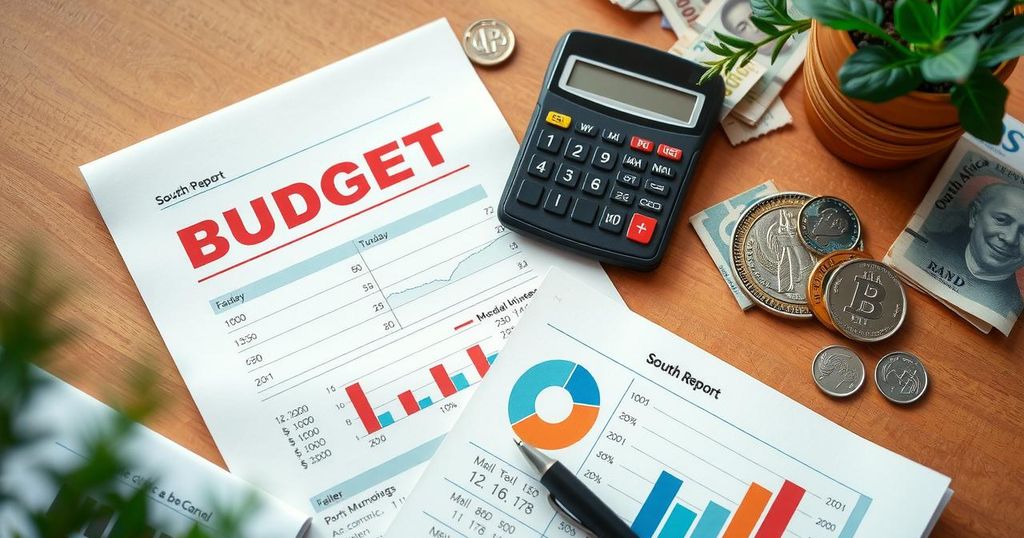South Africa’s National Treasury proposed a smaller VAT hike of 0.5 percentage points to resolve coalition disagreements, following a failed 2-point proposal. Despite this adjustment, opposition from the Democratic Alliance persists, complicating budget approval. The tax increase is intended to support critical sectors while leading to a raised budget deficit and potential inflation.
On March 12, South Africa’s National Treasury introduced a revised budget proposing a smaller increase in the value-added tax (VAT) to resolve conflicts within the coalition government. Previously, a 2-percentage-point VAT increase had been suggested; however, the African National Congress’ (ANC) largest coalition partner did not support this initiative, leading to the budget’s postponement. The Treasury now proposes an increase of 0.5 percentage points to 15% starting May 1, with another increment planned for 2026.
As Finance Minister Enoch Godongwana prepared to present the revised budget, Democratic Alliance leader John Steenhuisen publicly announced his party’s opposition, stating, “The DA will not support the budget in its current form.” The upcoming budget serves as a significant challenge for the ANC-led coalition government, which lost its parliamentary majority last year for the first time since 1994.
The ANC requires support from at least one major party to pass the budget, particularly as external parties like the Economic Freedom Fighters also oppose tax increases. Although the ANC and DA frequently disagree on ideological grounds, they have managed to maintain governance together, despite occasional conflicts.
The Treasury highlighted ongoing and serious spending pressures necessitating additional funding, asserting that the tax raise will support critical sectors such as health, education, and transportation. Godongwana emphasized that raising the VAT was the most viable alternative to prevent deeper spending cuts, having previously considered other options. The tax hike aims to yield an extra 28 billion rand (approximately $1.53 billion) for the upcoming fiscal year, significantly less than the 58 billion rand originally projected. To mitigate financial shortfalls, funds will also be sourced from adjusted reserves.
The forecast indicates a budget deficit of 5.0% of gross domestic product (GDP) by fiscal year 2025/26, with debt expected to peak at 76.2% of GDP during that period. Furthermore, the VAT increase is anticipated to result in an uptick in consumer inflation.
The revised budget proposed by South Africa’s National Treasury outlines a reduced VAT hike as a strategy to navigate conflicts within the coalition government. Despite this reduction, opposition remains from key party leaders, which raises uncertainty regarding the budget’s passage. Acknowledging pressing financial needs, the proposals aim to bolster essential public sectors while also forecasting a significant budget deficit and increasing consumer inflation.
Original Source: www.cnbcafrica.com




